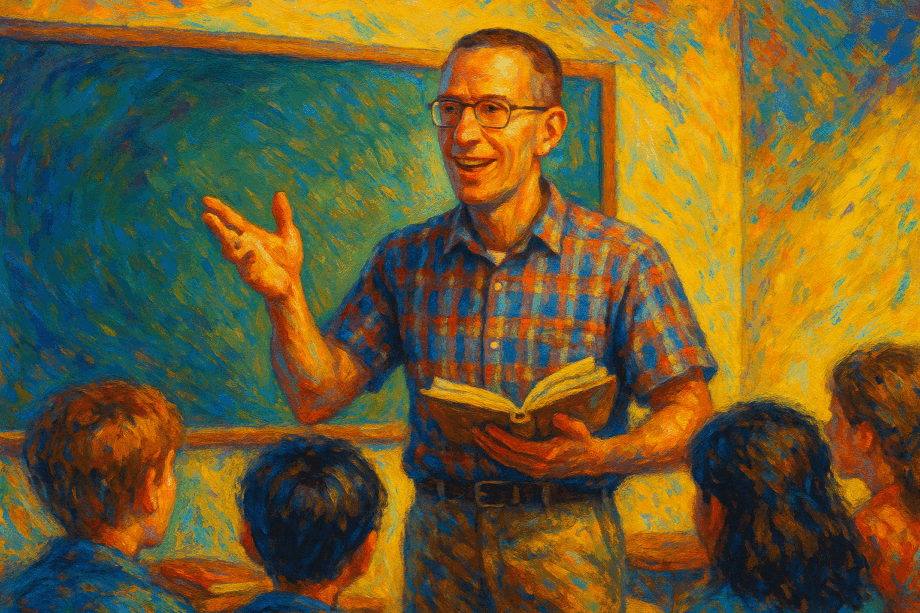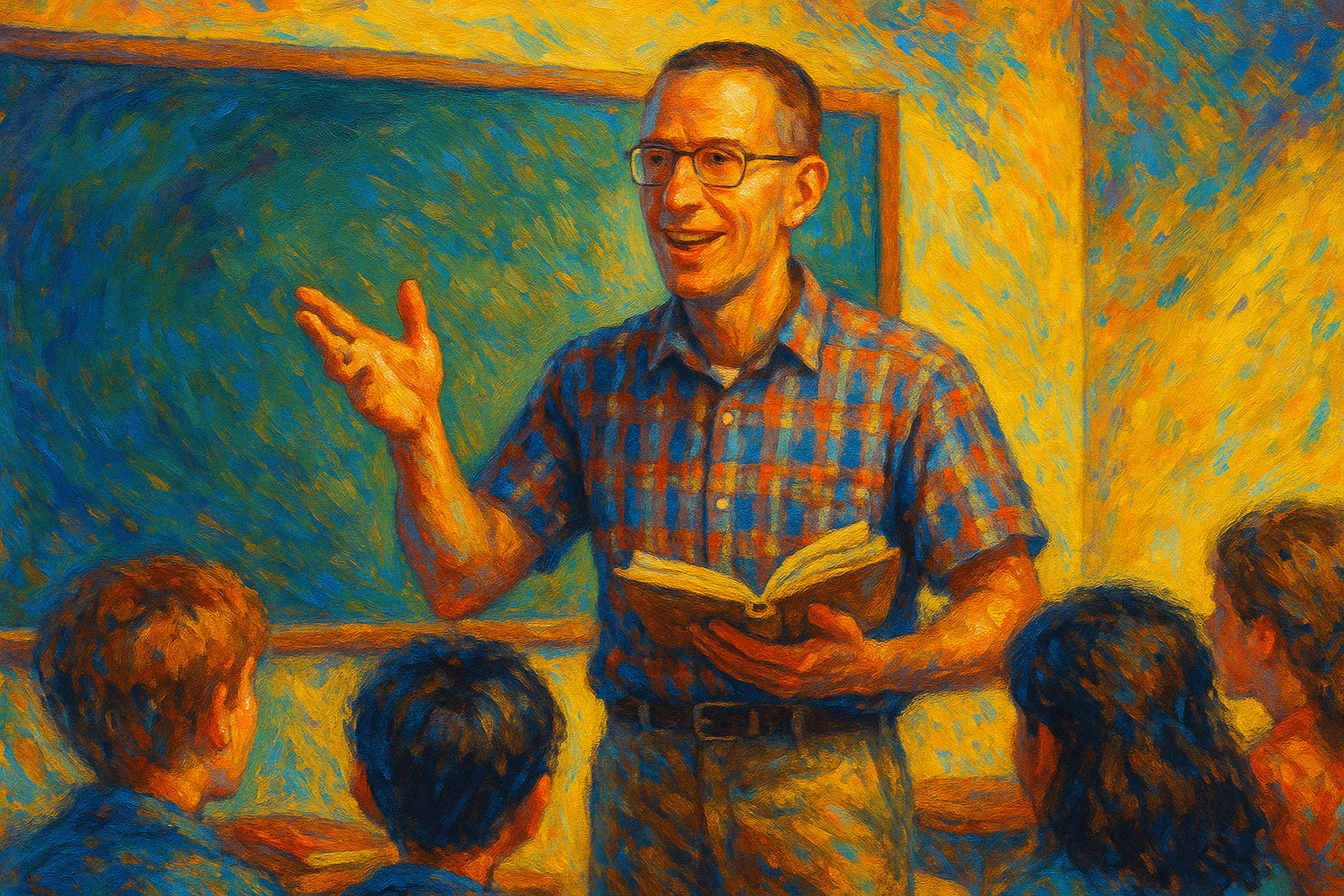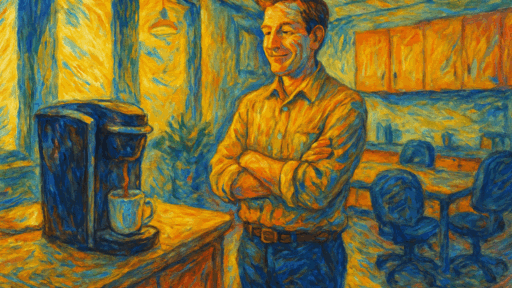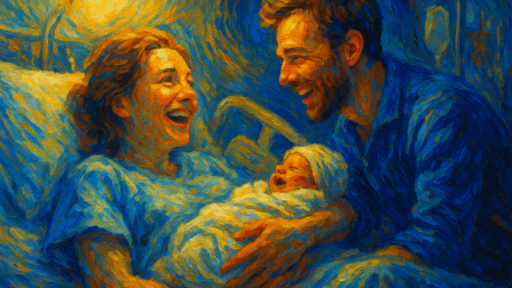“The universe is made of stories, not atoms.”
Muriel Rukeyser
If you ever went to Catholic school in the ‘90s, you probably had a Mr. Schmidt. Mine taught religion, which, at sixteen, felt like the class version of decaf—technically fine, but why bother?
He wasn’t a priest. Just a man in a slightly rumpled plaid shirt and a haircut that was trying to be current but couldn’t quite shake the “church picnic youth leader” vibe. He was in his thirties, old enough to be respected, young enough to think he still got us.
“All stories are true,” he’d say, squinting at us over his wire-rim glasses, “and some of them actually happened.”
We’d glance at each other like, Okay, Yoda, but is this going to be on the test?
At the time, I thought he was just another grown-up trying too hard to sound deep. Trying to be cool.
He’d do things like refer to the other teachers by their first names—“Well, you know, Jan and I went to that Jon Secada concert last weekend”—as if we were all colleagues in the faculty lounge instead of kids still figuring out deodorant.
He wanted us to think he was one of us. We, of course, thought it was hilarious.
But decades later, somewhere between helping my own kids with homework and realizing my lower back has opinions now, “All stories are true” came back to me. Out of nowhere. Like an unsolicited LinkedIn connection from the past.
And it hit me:
Mr. Schmidt wasn’t wrong.
He was just early.
See, when you’re young, you think truth lives in the facts. What happened, who said what, where you stood when she broke your heart in the McDonald’s parking lot. (True story. Probably.)
But the older you get, the more you realize: the feeling of it is what matters.
The story’s version becomes the real version.
I’ve told certain tales so many times they’ve had more reboots than Spider-Man. An intramural basketball game becomes the stuff of legend. A fifth-grade talent show—rigged, obviously—turns into the scandal of our youth. My kids don’t fact-check; they just roll their eyes.
And I can’t blame them. I used to do the same thing to Mr. Schmidt.
“All stories are true,” he said, and I see it now. The truth isn’t in the GPS coordinates. It’s in the meaning.
The way memory smooths out the edges until the hard parts feel almost beautiful.
The way nostalgia lies to you just enough to make life poetic.
We like to think truth and fiction live on opposite sides of the street, but they don’t. They share a fence line. The old stories—the ones with gods, heroes, and radioactive spiders—aren’t about facts. They’re about us. What we fear. What we want to believe. What we keep learning the hard way.
And so I get it now, Mr. Schmidt.
You weren’t just grading essays. You were telling us that life itself is a story—messy, exaggerated, sometimes unreliable, but real in all the ways that count.
You were right.
And also… definitely a dork.
But the wise kind.
The kind I’ve apparently become.
So here’s to you, Mr. Schmidt—patron saint of over-sharing and under-ironing.
All stories are true.
And this one?
Especially this one.






